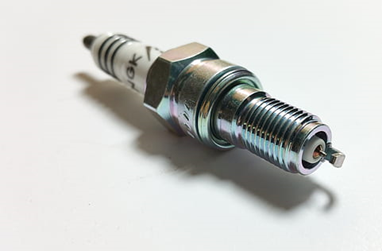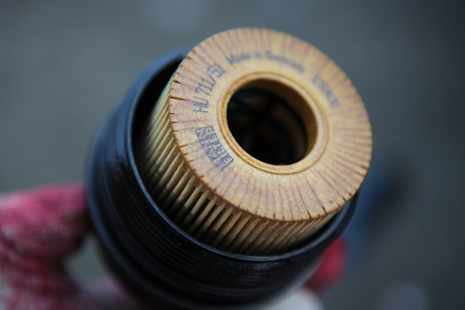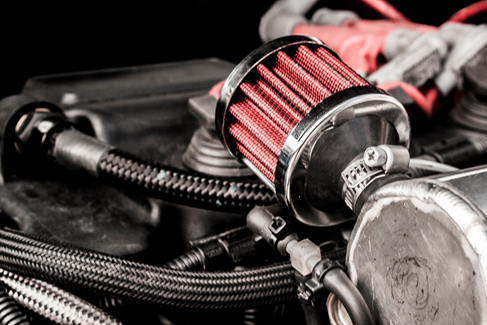Blog
Analyzing The Benefits And Limitations Of Car Spare Parts

Spare components encompass a wide range of items, ranging from small individual elements like bolts, screws, or filters to larger parts such as engines, pumps, or motors. Original equipment manufacturers (OEMs) or third-party suppliers produce these parts to ensure their compatibility and proper functioning with specific equipment. The purpose of car spare parts is to provide replacements for damaged or malfunctioning components, minimizing downtime and ensuring the smooth operation of machinery. They find common usage in industries such as automotive, aerospace, manufacturing, construction, and various others. When acquiring car spare parts, it is crucial to consider factors such as quality, compatibility, availability, and cost-effectiveness. Proper inventory management and maintenance planning are also essential to ensure the necessary spare parts are readily available when needed.
The following are examples of car spare parts
- Spark plug
- Oil filter
- Air filter
Spark Plug
A spark plug holds immense significance as a component in internal combustion engines, found in vehicles, motorcycles, lawnmowers, and other equipment reliant on combustion for power generation. It assumes responsibility for igniting the fuel-air mixture within the engine’s cylinders, thereby creating the necessary burst to drive the engine. Spark plugs are available in different brands such as Toyota, Daihatsu, Suzuki, Changan, Denso, etc. They can also be obtained from local brands or imported, ensuring good quality.

Advantages Of Spark Plugs
Reliable Combustion
Spark plugs ensure consistent and reliable ignition of the fuel-air mixture, leading to smooth and efficient engine operation.
Fuel Efficiency
Properly functioning spark plugs maximize fuel efficiency by ensuring complete combustion of the fuel-air mixture.
Engine Performance
Spark plugs play a crucial role in overall engine performance, directly influencing factors such as power output, acceleration, throttle response, and smooth running of the engine.
Emissions Reduction
Properly functioning spark plugs contribute to minimizing harmful emissions by influencing the combustion process.
Disadvantages Of Spark Plugs
Wear and Tear
Spark plugs undergo significant stress from high temperatures, electrical arcing, and chemical reactions within the combustion chamber.
Fouling
Over time, spark plugs can accumulate deposits like carbon, oil, or fuel residue. This fouling may result from incomplete combustion, low-quality fuel, oil leakage, or underlying engine issues.
Gap Erosion
Continuous electrical arcing across the spark plug gap can lead to electrode erosion. This erosion widens the gap, reducing the spark’s efficiency and compromising ignition performance.
Compatibility and Installation
Selecting the correct spark plug that aligns with the specific engine model and adheres to the manufacturer’s recommendations is of utmost importance.
Oil Filter
An oil filter assumes a vital role in internal combustion engines by aiding in the removal of contaminants from the engine oil. It effectively filters out impurities and particles that could potentially harm the engine and hinder its performance. Oil filters are available in many brands such as Toyota, Suzuki, Daihatsu, Changan, Nissan, Hyundai, Kia, Guard, etc. They can also be sourced from local brands, but their quality may be compromised. Alternatively, imported options are available.

Advantages Of Oil Filters
Contaminant Removal
The primary advantage of an oil filter lies in its ability to remove contaminants from the engine oil. It filters out impurities such as dirt, metal particles, sludge, and other debris that can accumulate during engine operation.
Engine Protection
By removing contaminants, the oil filter plays a crucial role in safeguarding the engine. Clean oil facilitates the lubrication and cooling of various engine parts, including bearings, camshafts, pistons, and crankshafts.
Extended Engine Life
An oil filter, by removing contaminants and maintaining clean oil, contributes to prolonging the engine’s lifespan.
Improved Oil Circulation
An oil filter ensures proper oil circulation throughout the engine, preventing clogging or blockages in oil passages that could impede oil flow to critical engine components.
Disadvantages Of Oil Filters
Pressure Drop
The flow restriction caused by an oil filter can result in a pressure drop across the filter. This pressure drop may impact oil circulation and reduce the overall oil pressure within the engine.
Bypass Valve Activation
In situations where the oil filter becomes clogged or reaches its maximum filtering capacity, the bypass valve within the filter may open, allowing unfiltered oil to bypass the filter element.
Maintenance and Replacement
While regular maintenance and replacement of the oil filter are necessary for optimal performance, associated costs, and effort may be considered as potential disadvantages.
Compatibility Issues: Oil filters must be selected based on specific engine requirements, including thread size, sealing gasket, and overall dimensions.
Air Filter
An air filter holds immense importance as an integral component within the intake system of an internal combustion engine. It efficiently filters the air entering the engine, removing contaminants and particles before they reach the combustion chamber. Air filters are available in many brands such as Suzuki, Kia, Toyota, Daihatsu, Hyundai, Nissan, Guard, etc. Local brands offer affordable options, but their quality may be lower.

Advantages Of Air Filters
Contaminant Removal
The primary advantage of an air filter lies in its ability to remove contaminants from the incoming air before it reaches the engine’s combustion chamber.
Engine Protection
The air filter plays a crucial role in protecting the engine from contaminants. Clean air is essential for proper combustion and efficient operation of engine components such as cylinders, pistons, valves, and spark plugs.
Improved Airflow
While removing contaminants, the air filter is designed to allow a sufficient amount of clean air to pass through to the engine. Proper airflow is vital for optimal engine performance, combustion efficiency, and power output.
Fuel Efficiency
Clean air is essential for achieving optimal fuel efficiency in an internal combustion engine. The air filter ensures that the engine receives a clean and appropriate air-to-fuel mixture.
Disadvantages Of Air Filters
Airflow Restriction
Air filters introduce some degree of airflow restriction in the intake system. As air passes through the filter media, it encounters resistance, potentially affecting the engine’s ability to draw in air efficiently.
Filter Clogging
Over time, air filters can become clogged with trapped contaminants. As the filter media captures particles, it gradually accumulates debris, reducing its filtering efficiency.
Compatibility Issues
Air filters must be selected based on specific engine and intake system requirements. Different engines may have varying air filter sizes, shapes, and connections.
Environmental Impact
Air filters generate waste when they reach the end of their lifespan. Improper disposal of used air filters can contribute to environmental pollution.
Non-OEM Car Spare Parts
Non-OEM (aftermarket) parts offer several advantages for vehicle owners. One significant advantage is cost savings since non-OEM parts are often less expensive than their OEM counterparts, making them appealing to budget-conscious individuals. Additionally, non-OEM parts enjoy greater availability from various sources, providing enhanced accessibility. They also offer a broader range of options, allowing vehicle owners to select from different brands, styles, and performance levels, facilitating customization and personalization. Some non-OEM parts are even specifically designed to enhance performance or offer features not available in OEM parts, providing opportunities for improved functionality or specialized applications.
However, it is important to consider the disadvantages as well. Non-OEM parts may vary in quality and reliability, potentially leading to premature wear, reduced durability, or compatibility issues. Their usage may also void the vehicle’s warranty, as manufacturers typically recommend using OEM parts. Fitment and compatibility can pose challenges, and the use of non-OEM parts may lower the vehicle’s resale value. Therefore, it is crucial to carefully weigh the advantages and disadvantages and make informed decisions based on individual needs, preferences, and long-term goals for the vehicle.
Some aftermarket brands include
- NGK
- Joint Toyo
- Dk Japan
- Asian
- CTG
- B+V
- SKI
- SHY
Conclusion
Analyzing the benefits and limitations of spare parts is crucial for vehicle maintenance and repairs. Spare parts offer several advantages, such as cost-effectiveness, availability, and compatibility with various vehicle models. They serve as affordable alternatives to original equipment manufacturer (OEM) parts and are readily available from various sources. Additionally, aftermarket spare parts provide customization options and may offer improved performance features not found in OEM parts.
However, it is important to consider the limitations of spare parts as well. Quality and reliability can vary, with some aftermarket parts being of lower quality compared to OEM parts. There is a risk of purchasing substandard components that may not meet the same standards, leading to premature wear, reduced durability, or compatibility issues. Another limitation is that the use of non-OEM parts may void the vehicle’s warranty, as manufacturers typically recommend using OEM parts for optimal performance and reliability. It is crucial to carefully consider these factors and make informed decisions when selecting spare parts for vehicle maintenance and repairs.

 Suzuki
Suzuki Honda
Honda Toyota
Toyota